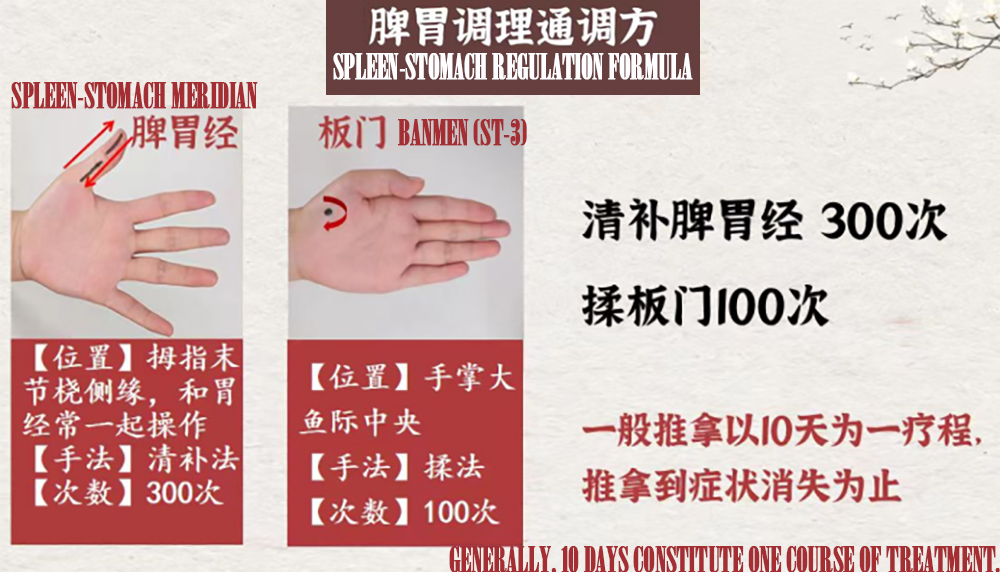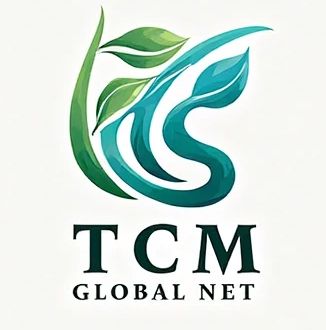I. Introduction: Nurturing the Spleen and Stomach is Key to Children’s Health
In traditional Chinese medicine, the spleen and stomach are considered the “foundation of acquired constitution,” the source of the body’s qi and blood, and are crucial for children’s growth and development. However, in modern life, many parents have misconceptions about nurturing children’s spleen and stomach, leading to various health issues in children.
II. Expert Introduction: Qianqian’s Journey in Integrating Chinese and Western Medicine
Teacher Qianqian has a background in midwifery and worked in hospitals for many years. Through interactions with postpartum mothers, she deeply realized that many parents have misconceptions about children’s health issues. To help more families, she turned to study pediatric tuina in traditional Chinese medicine and accumulated nearly ten years of clinical experience.
III. Rain Water Solar Term: Following Nature, Nourishing the Liver and Strengthening the Spleen
1. Characteristics of the Rain Water Solar Term:
- Time: The second solar term of spring, marking the increase in precipitation.
- Characteristics: The rise of yang energy, warming climate, but with significant temperature differences between morning and evening, and lingering cold.

2. Key Points for Health Preservation:
- Spring Covering to Prevent Cold:
- In early spring, temperatures fluctuate greatly, so do not remove cotton clothing too early to avoid cold invasion, which can lead to colds, joint pain, and other issues.
- Pay special attention to keeping children’s abdomen and feet warm.
- Dietary Therapy for Liver Soothing:
- In spring, all things revive, and the liver qi in the body also rises, easily causing mood swings, irritability, and anger.
- Recommended Foods:
- Acidic Foods: Such as hawthorn and vinegar, which have astringent properties and can soothe the liver, relieve qi, and resolve stasis.
- Spinach: Rich in vitamins and minerals, it has the effect of soothing the liver and nourishing blood.
- Other Recommendations: Radish, bitter melon, seaweed, pear soup, etc., which help soothe the liver and relieve depression.
IV. Spleen Deficiency and Dampness Diarrhea: Common Issues in Spring
- External Dampness Triggering Internal Dampness:
- In spring, with increased rainfall, the dampness is heavy, easily leading to the accumulation of dampness in the body, causing symptoms like spleen dampness and diarrhea.
- Manifestations include: discomfort in the spleen and stomach, loss of appetite, heavy head and fatigue, joint pain, etc.
- Strengthening the Spleen and Benefiting Qi is Key:
- The spleen prefers dryness and dislikes dampness; the first step in strengthening the spleen is to resolve dampness.
V. Functions of the Spleen: The Foundation of Human Health
- The spleen is responsible for transforming food into nutrients needed by the body and transporting them to the five organs and six bowels.
- Impact: Poor spleen and stomach function can lead to poor nutrient absorption, affecting children’s growth and development.
- The spleen regulates the metabolism of body fluids, converting excess water into sweat, urine, and other forms to be expelled from the body.
- Impact: Spleen deficiency can lead to abnormal fluid metabolism, causing edema, excessive phlegm, and other issues.
- The spleen is responsible for controlling blood, ensuring it circulates normally within the meridians.
- Impact: Spleen deficiency can lead to insufficient qi and blood, causing symptoms like sallow complexion and fatigue.
VI. Spleen-Damaging Behaviors: These Habits are Harming Children’s Spleen and Stomach
- Reason: Milk is cold in nature, and many Asian children have a cold spleen and stomach; excessive consumption can damage the spleen and stomach.
- Suggestion: Consume in moderation, avoid using milk as a staple food.
- Common Issues: Rhinitis, adenoid hypertrophy, tonsil enlargement, etc.
- Symptom Manifestations:
- Stomach Fire Rising: Excessive stomach fire, indigestion, picky eating, coughing, bad breath, red throat.
- Spleen Deficiency: Pale lips, dry mouth, drooling, sallow complexion, diarrhea, constipation, loose stools, loss of appetite.
- Reason: Cold drinks can damage the yang qi of the spleen and stomach, leading to spleen and stomach cold deficiency.
- Suggestion: Drink less cold drinks, especially in winter.
- Reason: Cold-natured fruits can exacerbate internal cold and dampness, damaging the spleen and stomach.
- Suggestion:
- Avoid consuming too many cold-natured fruits like watermelon, mango, kiwi, and dragon fruit.
- Bananas can be steamed and eaten with honey to reduce their cold nature.
- Misconception: Eating more meat will make you gain weight, eating bones will nourish bones.
- Correct Principle:
- Mainly grains, such as corn, wheat, steamed buns, etc.
- Meat as a supplement, consume in moderation, such as beef, chicken, etc.
- Vegetables as a complement, eat more vegetables.
- Feeding Suggestions:
- Adopt feedback-based feeding, observe children’s reactions to different foods.
- Keep meat types simple, avoid consuming multiple types of meat at once.
VII. Tuina Techniques: Simple and Effective Methods for Strengthening the Spleen
- Location: The outer edge of the thumb.
- Technique: Gently massage back and forth with the thumb.
- Location: Located at the thenar eminence of the palm.
- Effect: Regulates the spleen and stomach, treats hiccups, stomach bloating, indigestion, and poor appetite.
- Technique: Press and rub with the thumb for three to five minutes.

VIII. Dietary Therapy: Si Shen Tang, a Delicious Choice for Strengthening the Spleen and Nourishing the Stomach
- Ingredients: Yam, gordon euryale seed, white hyacinth bean, lotus seed.
- Method:
- Wash all ingredients, add an appropriate amount of water, and simmer in a clay pot for better results.
- According to personal taste, add a small amount of soaked silver ear or lily to enhance the effect of nourishing yin and clearing heat.
- Effects:
- Yam and gordon euryale seed not only strengthen the spleen but also nourish the kidney, suitable for children.
- Lotus seed can nourish the heart and calm the mind, while white hyacinth bean strengthens the spleen and resolves dampness.
IX. Case Analysis: Traditional Chinese Medicine Adjustment for Children’s Spleen and Stomach Issues
Case Description:
A 7-year-old boy experienced loss of appetite, abdominal distension, and frequent diarrhea, with a white and greasy tongue coating and a pale tongue body.
Traditional Chinese Medicine Analysis:
- The tongue appearance indicates spleen and stomach cold deficiency with heavy internal dampness.
- The symptoms suggest a dysfunction in the spleen and stomach’s transportation and transformation.
Treatment Plan:
- Tuina:
- Perform daily tuina on the spleen and stomach meridians and the Banmen acupoint.
- Dietary Therapy:
- Take Si Shen Tang with a small amount of ginger added (to warm the middle and dispel cold).

- Dietary Adjustments:
- Avoid cold foods like cold drinks and ice cream.
- Reduce fruit intake, especially cold-natured fruits.
- Other Suggestions:
- Maintain a regular sleep schedule, avoid staying up late.
- Engage in appropriate exercise to promote digestion.
Treatment Results:
After two weeks of adjustment, the boy’s appetite significantly improved, abdominal distension and diarrhea symptoms disappeared, and his tongue coating became clean with a rosy tongue body.
X. Conclusion
- Spleen and Stomach Health is the Foundation of Children’s Health: Parents should pay attention to nurturing the spleen and stomach and avoid spleen-damaging behaviors.
- Follow Nature, Treat According to Differentiation: Choose appropriate adjustment methods based on seasonal changes and the child’s constitution.
- Tuina and Dietary Therapy are Effective Auxiliary Methods: Parents can learn some simple tuina techniques and spleen-strengthening dietary therapy recipes to help children adjust their spleen and stomach.


Leave a Reply